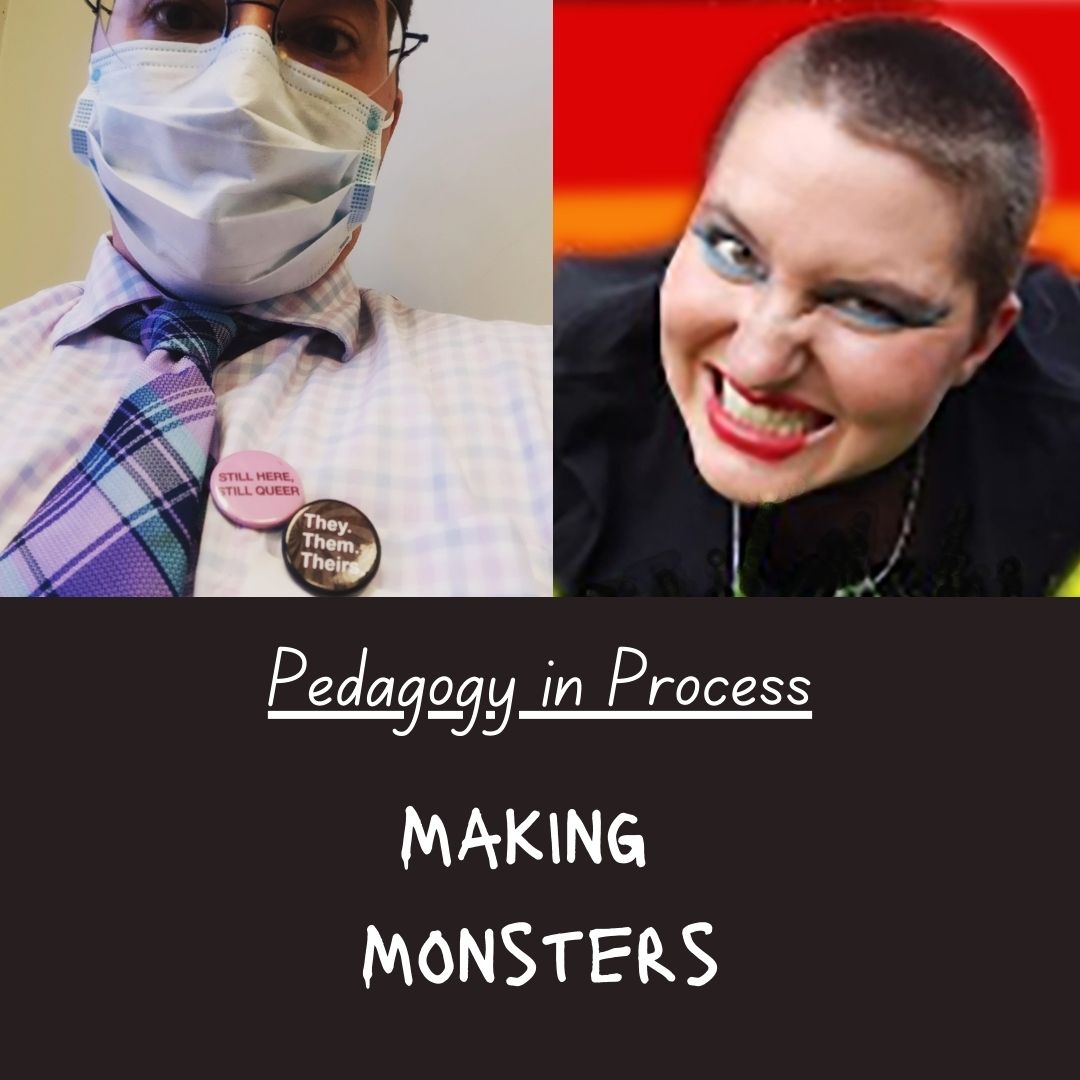Pedagogy in Process host Nicolas Shannon Savard is joined by Dr. Katya Vrtis and Kairos Looney to unpack the contemporary wave of anti-trans politics. And to talk about monsters. Bringing together performance studies with queer-/crip and critical race theories, the conversation serves as a space to theorize collaboratively, to process, to strategize modes of resistance.
This conversation was originally presented under the title “We Are/Not Monsters: Queer/-Crip Theorizing in Process” at the 2023 Association for Theatre in Higher Education Conference. It was co-sponsored by the LGBTQ+ and Disability, Theatre, and Performance (DTAP) Focus Groups. We recorded it and broke it up into two podcast episodes to continue the conversation beyond the conference.
Part One. Making Monsters: Queer-crip theorizing in process
We explore what it means to be a monster culturally, politically, in everyday life, in the academy and how that’s tied to power; cultural legibility; and disabled, crip, mad, racialized, queer, nonbinary, and trans embodiment.
Part Two. Making Monsters: A disability history of trans politics
Nicolas, Dr. Katya Vrtis and Kairos Looney continue their discussion on monsters. Part two focuses on what disability history can teach us about the contemporary wave of anti-trans politics. We cover histories of centuries-old literary monsters, freak shows, the invention of the incubator, the DSM, the medical model of disability, and more!
KEY QUESTIONS GUIDING THE DISCUSSION
1. What does it mean to be a monster?
2. Where can we see remnants of the era of the freak show in the present day medical model of disability?
3. How is the history of the medicalization of same-sex attraction and gender nonconformity still informing political arguments around trans identity and healthcare?
4. How do logics of “cure” frame non-normative, queer, disabled, racialized bodies as either excessive or insufficient, in need of fixing? How are those narratives weaponized to police non-normative bodyminds?
5. How do white supremacist, patriarchal social structures demand queer, trans, disabled people perform in order to “prove” our own humanity on stage, in the doctor’s office, in the classroom, in the legislature?
6. What are the radical possibilities of refusing to provide such proof, of embracing monstrosity? What are the consequences of refusing to engage in such performances?
7. Who are some of the key scholars, thinkers, writers, activists, artists informing your thinking on this topic? Who do you want to bring into this conversation? (Search “monsters” in our shared library to learn more! Zotero Library: for theatre scholars | Zotero)

